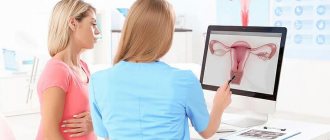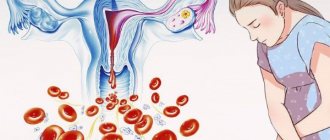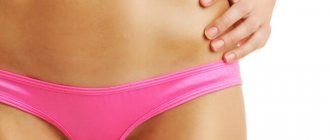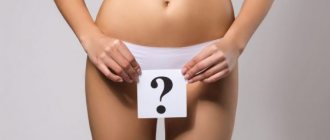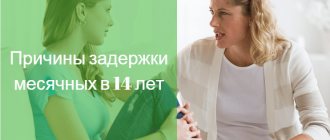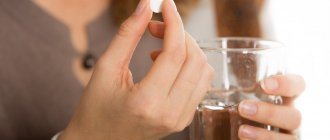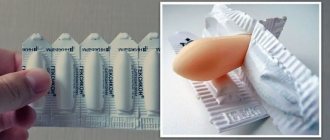Menstruation is quite painful for women. And to avoid complications during this period, you should adhere to certain recommendations. The female body is very weakened during menstruation. This is explained by a decrease in hemoglobin levels caused by blood loss. As a result, the woman experiences general weakness and malaise; she may be bothered by dizziness and pain in the abdomen and lower back. In this article, we will look at what you cannot or are not recommended to do during your period and why there are prohibitions.
Physical exercise
Girls who are actively involved in sports should know that during menstruation they should not lift weights or do high-intensity exercises . It is important to understand why significant physical activity is prohibited:
- Serious stress promotes blood flow to the pelvic organs, so this process can provoke more severe bleeding, which is especially critical if menstruation is already heavy.
- Menstruation involves the loss of some blood. Hemoglobin is also lost along with the blood, and its low content in the body leads to weakness, drowsiness, and increased fatigue.
However, you should not go to the other extreme - stay in bed. Usually the most problematic day of your period is the first. If your periods are very painful, then it is better to take a painkiller, but do not lie in bed all day.
Moderate physical activity will avoid blood stagnation, and by the time the painkiller stops working, the process will normalize and pain will not be felt.
On the first day of menstruation, doctors recommend not going to the gym or doing strength exercises.
Lifting heavy weights causes prolapse of the uterus and vagina.
You should not jump or run during menstruation, but relaxing gymnastics, on the contrary, are recommended. You can do Pilates and yoga. Teenage girls may be exempt from physical education on this day. If possible, you should avoid going to the pool or swimming in open water. If this is not possible, you need to use a hygienic tampon, which should be replaced after swimming.
Useful video
To learn about what types of workouts to give preference to during your period, watch this video:
Similar articles
- Menstruation or bleeding - how not to confuse the dangerous...
It can be very difficult to independently understand whether it is heavy periods or bleeding. However, there are clear signs of menstruation and bleeding, as well as additional symptoms for which it is important to see a doctor. Read more - Anovulatory menstrual cycle: could it be...
Sometimes there may be menstruation without ovulation. Doctors call this an anovulatory menstrual cycle. If this happens once or twice a year, then there is no need to panic. But if menstrual bleeding occurs without ovulation when planning a pregnancy, then this is a reason to visit a doctor. Read more
- Menstruation while taking birth control: how it goes with...
Often, menstruation occurs with less pain and less discharge when taking birth control pills. However, it may differ depending on whether emergency or permanent contraception was used. Read more
- Algodismenorrhea: treatment, causes of primary...
If algodismenorrhea is detected in girls, treatment should be started as soon as possible. It can be primary and secondary, adolescents are often diagnosed with “NMC syndrome by type”, and women – secondary. Symptoms: acute pain during menstruation, changes in emotional background. Medicines, pills, exercise therapy will help. Read more
Sex life
Some people neglect doctors’ ban on sexual intercourse during menstruation, and completely in vain:
- Menstruation does not work as a method of preventing pregnancy, since doctors have long proven that pregnancy can occur during menstruation. This is determined by the physiological characteristics of the woman.
- Sex is still the same physical activity that should be avoided.
- The process can cause discomfort (both aesthetic and physical) to both partners.
- During this period, the risk of infection increases, since the inner surface of the uterus during this period is not protected by the mucous membrane, and female secretions that enter the urethra of the male penis can cause an inflammatory process.
- Sex can be painful for a woman.
- Sexual intercourse is accompanied by blood flow to the pelvic organs, which increases bleeding.
- Blood backs up into the fallopian tubes, which increases the risk of developing endometriosis. Its consequences: adhesions, cycle failure, and even infertility.
Fortune telling by starting number
Even the date on which your period began, according to signs, speaks volumes.
- 1. If your period began on the first day of the month , then the sign promises you happiness throughout the next period.
- 2. The second number is not so pleasant. It foretells that this month you will learn what contempt is and will experience it throughout the next thirty days. You should be a little colder in your expressions of emotions, otherwise a serious conflict is possible.
- of quarrels and conflicts is expected on this date . You need to try to do everything to avoid them or at least reduce them.
- 4. If your critical days began on the fourth , the next month will be very cheerful and happy.
- 5. Nice gifts . And they will probably be unexpected.
- 6. The sixth number suggests that you will be mired in rumors and gossip. It’s just important not to take them too seriously, because there have always been and will be envious people.
- 7. Seven is a lucky number . Therefore, the onset of menstruation during this period is a harbinger of sincere and pure love. This may be a feeling that will last a lifetime, so try to preserve it.
- 8. If you are jealous , try to control yourself, otherwise the consequences can be dire.
- 9. The beginning of the ninth cycle warns you that you need to behave calmly . Troubles are possible in the near future, and if you do not panic, you will be able to overcome them with dignity.
- 10. The tenth number suggests that falling in love is possible soon. And not necessarily new. Perhaps you will fall in love with your boyfriend or husband with renewed vigor.
- 11. This number means that you can have no doubt about your other half . At any moment, this person will provide you with his reliable shoulder, because his devotion towards you is limitless.
- 12. Life promises that you will be fascinated by some person . He could be new to your life or someone you already know. But this will probably only be a temporary hobby.
- 13. The thirteenth, according to popular belief, says that the near future will be very unlucky. But don't worry. This period will soon be replaced by a white stripe.
- 14. Good news is expected , which you will be very pleased to receive.
- 15. But the fifteenth number is the opposite of the fourteenth . It just promises bad news.
- 16. This date suggests that in the coming month your tongue will be your enemy . It’s worth a little restraining your desire to gossip and comment on your opinion about what is happening.
- 17. You will be separated from a person who is very dear to you . But don't worry, because it will probably be short-lived.
- 18. Soon you should fall in love . Only you yourself can understand whether your feeling will be real.
- 1 9. If the beginning of your period fell on the nineteenth , then do not doubt that you will soon be swallowed up by happy and mutual love.
- 20. But the twentieth number is popularly associated with unrequited love . It will be quite difficult to cope with it, but you will have to do it.
- 21. This number warns you that you will soon need to be vigilant . Deception can come from places you don't expect, so be prepared.
- 22. The start of your period on the twenty-second promises you financial success . This could be a serious bonus or even winning the lottery.
- 23. This number promises you happiness in all areas , which will accompany you throughout the month.
- 24. And in this case, you should be ready at any moment for the arrival of guests , and those whom you did not expect to see on your doorstep.
- 25. The twenty-fifth speaks of new pleasant acquaintances . Soon you will have to expand your circle of friends.
- 26. Soon you will need help . But you can be sure that you will get it if necessary. If you need to be pitied, rest assured that there will be someone to do it.
- 27. The twenty-seventh promises you the fulfillment of all your desires.
- 28. And in this case, a popular sign says that your whole life will seem exceptionally prosperous to those around you.
- 29. Something may soon upset you , even to the point of tears.
- 30. The thirtieth promises mutual passion , which will delight you for at least the next month.
- 31. The onset of menstruation on the last day of the month means that soon something awaits you that you did not expect. By the way, this may be some kind of long journey that you have to go on.
Hot baths
Water procedures during menstruation are not contraindicated, but in this case it is the temperature indicator that is important. Hot water increases body temperature, and because of this, in turn, the blood vessels dilate. Excessive bleeding that may result from such exposure sometimes cannot be stopped at home and medical attention is required.
Doctors do not recommend taking baths due to the possibility of infection entering the body. If, nevertheless, this procedure is unavoidable, its duration should not be more than 20 minutes, and the water should not be hot, but warm. It is preferable to use a shower during this period for hygienic purposes.
On critical days the following are prohibited:
- bath;
- sauna;
- hot bath;
- hot shower.
Due to blood loss in a bath or sauna, the risk of fainting increases.
Drink alcohol
Alcohol is not contraindicated during menstruation. To drink or not to drink is always a matter of general health and personal decision; periods have nothing to do with it, but there is one interesting pattern.
This change is especially significant for women, who usually have good tolerance, that is, they can drink a lot and not get drunk. They experience a sharp decrease in tolerance during menstruation. Tatyana Rumyantseva warns: if you drink the same amount of alcohol as a week before your period, you can end up much drunker.
Diagnostic measures
Many laboratory and diagnostic tests will give erroneous results during menstruation.
- It is not recommended to donate blood during this period, since the indicators change during this period and the results will be unreliable.
- It is problematic to take urine and feces for analysis. There is a high risk of blood getting into the analysis when taking biomaterial.
- An ultrasound of the pelvic organs will give a distorted result, because significant changes occur during this period.
- Discharge will not allow you to conduct a full gynecological examination of the mucous membrane and cervix during menstruation.
Breast ultrasound and mammography are highly dependent on the period of the cycle. So, it is recommended to do an ultrasound immediately after menstruation, but mammography, on the contrary, during menstruation. If a test collection is still scheduled for this period or if your period begins suddenly, you should notify your doctor about this.
Hygiene features
Maintaining personal hygiene during the period of regulation is very important, but you must adhere to the following rules:
- Do not visit a hot bath or sauna. You should also avoid taking a hot bath during your period. The increased temperature characteristic of a steam room will provoke dilation of blood vessels and sudden increases in blood pressure, which has a dangerous consequence in the form of heavy bleeding. The best option is to take a warm shower. You can go to the bathhouse with your period only if you are in the last days of your period and the discharge looks more like spotting and not bleeding.
- Do not swim during your period in open water and public pools. This precaution will protect the woman from getting a dangerous infection into the vagina and cervix, from which even a tampon cannot protect.
- Alternate the use of tampons with pads. Despite the convenience of tampons, if used incorrectly, they can be dangerous to a woman's health. It is necessary to adhere to the rules for their use: change them at least every 3-4 hours (or earlier - as they are full), hands should be thoroughly washed with soap to prevent infection from entering the vagina.
- Do not neglect pads - when using them, secretions come out freely, washing the walls of the vagina. All hygiene products must be of high quality and free of synthetics and aromatic impurities.
Neglecting the above contraindications during menstruation will lead to severe disruption of the genitourinary system, which is dangerous due to many diseases, including infertility.
Surgical interventions
The ban on surgical interventions during menstrual periods is associated with a deterioration in blood clotting, so when planning absolutely any operation, the menstrual cycle will be taken into account.
In addition, up to 150 ml of blood is lost during menstruation, which increases the total blood loss.
Typically, surgical operations are prescribed on days 5-10 of the cycle, i.e. immediately after menstruation.
Here are the risks of surgery during menstruation:
- Due to the active blood supply to the tissues in the area where surgery was performed, inflammation may occur.
- For the same reason, pigmentation appears in the operated area. But these changes are reversible and go away on their own after a few days.
- Due to a decrease in the degree of blood clotting, there is a high risk of hematoma formation.
- It will be difficult to stop the bleeding during the operation.
- Collagen metabolism in the tissues is disrupted, so noticeable scars form at the incision site. If the incision is made in a visible place, aesthetic procedures may be required in the future.
Removing teeth in a dentist's office also refers to surgery, so it is better to plan this procedure for the postmenstrual period. If this rule is neglected, severe bleeding from the hole is possible.
In addition, if the operation is serious, postponing it until after menstruation allows for rehabilitation before the next cycle. Thanks to this, a woman will be able to independently carry out all the necessary hygiene procedures.
Rules for staying in the bathhouse
To minimize the undesirable consequences of visiting the steam room, you must follow the rules for visiting the bathhouse. These include:
- use of sanitary tampons or pads;
- control over the duration of the procedure (staying in the steam room - no more than 5 minutes);
- avoiding sudden temperature changes;
- refusal of alcohol on the day of visiting the bathhouse;
- The temperature in the steam room should be within 80 C°.
Advice! As an alternative to a Russian bath, you can use an infrared sauna.
If severe pain does not occur, you can steam during menstruation. In this case, warming up the body will only have a positive effect. A visit to the bathhouse helps remove accumulated fluid, along with which toxins go away. At the same time, the emotional state improves and spasms in the uterus are relieved, which is no less important during menstrual periods.
In the process of steaming the legs, the blood vessels dilate. First of all, this concerns the vascular system in the lower extremities and pelvis. You can soar your legs during menstruation in cases where the benefit outweighs the harm. Such situations include the presence of colds. Foot baths can speed up the healing process and prevent unwanted consequences of the disease. You should not hover your legs in the following cases:
- lumps in menstrual flow;
- phlebeurysm;
- undergoing an abortion or miscarriage the day before;
- bleeding disorders;
- tendency to dizziness.
People visit the bathhouse not only to improve their emotional state, but also to perform hygiene procedures. Their benefits during menstruation are highly questionable. The bathhouse creates a favorable environment for the proliferation of microbes. If a woman spends a long time on a bench, she can become infected with genitourinary infections. Therefore, care should be taken with hygiene in the bathhouse.
We suggest you familiarize yourself with laying tongue-and-groove boards with your own hands
Medications
Doctors recommend taking acetylsalicylic acid with particular caution. Some women resort to this remedy in order to reduce the discomfort associated with spasms of the uterine muscles. But this acid thins the blood, so your periods will become heavier and last longer.
Analgin also has a similar effect. It is recommended to use drugs that do not contain acetylsalicylic acid or acetaminophen as painkillers, for example Ibuprofen, Paracetamol.
If you are taking a course of Aspirin and your periods are heavy, you should discuss this with your doctor.
A ban on taking vitamin C during menstruation is not justified. Previously, it was used in high concentrations to stimulate labor. Now this method is not relevant. As part of regular vitamin therapy, the vitamin can be taken. According to the observations of women, ascorbic acid, on the contrary, reduces the duration of menstruation.
How much water to drink during menstruation
As for sex, researchers have long come to the conclusion that it is possible to have sex during menstruation.
Once upon a time, when people did not have a running water supply with clean hot water at hand (and these times have passed quite recently and not everywhere), combining menstruation and sex was unhygienic, although this is unlikely to always stop it.
During menstruation, the risk of contracting sexually transmitted infections is higher, but condoms are available for protection.
The popular belief that sex during menstruation leads to endometriosis has not been confirmed.
Until now, no one knows exactly what exactly causes this disease. They suspect malfunctions in the functioning of the immune system, atypical structure of organs, genetics, but sexual contacts during menstruation are not on the list.
There is no evidence that sex during menstruation causes endometriosis. At the same time, the reflux of menstrual blood into the abdominal cavity is a common occurrence. Obviously, it is not fundamental in the development of endometriosis. Therefore, we do not yet know what exactly provokes its development.
Let's start with the fact that sport itself is useful during menstruation. Movement and physical activity help manage ailments that women often experience, such as pain.
Menstruation is a reaction to a sharp drop in progesterone levels in the blood. It is during this time that levels of estrogen, another female hormone, are also very low.
That is, menstruation is a period when you can engage in short and intense training, since due to hormonal changes it is easier for the body to “get” to fuel. Even short workouts will be quite effective.
A separate issue is strength training with weights. They say that they can lead to prolapse of internal organs, in other words, to prolapse of the uterus or vagina. Prolapse is possible because the muscles that support the internal organs weaken, and are most affected by age, hormones and childbirth.
In general, constant hard physical work is indeed a risk factor for prolapse, but far from the most important. In addition, such hard work does not involve a gradual increase in load, safety precautions and everything that is in sports.
Another thing is, if you don’t feel well and don’t want to think about any gym, then you don’t need to overload your body. It is better to sit in some yoga pose - it relieves menstrual pain.
We suggest you read: How long does withdrawal from baclofen last?
Diet during menstruation
If by diet we mean a healthy diet, then it must always be followed. Menstruation is not a reason to binge on junk food. If a diet means a half-starved existence on several foods for the sake of rapid weight loss, then you should never follow it (we have already written why), periods have nothing to do with it.
During menstruation, it makes sense to eat foods high in iron, such as liver or meat, to slightly compensate for possible anemia. So don't miss out on a good beef steak.
During menstruation, nutrition should be balanced. The diet for menstruation involves the consumption of foods containing proteins of animal and plant origin, cereals, herbs, vegetables and fruits:
- During menstruation, it is necessary to eat lean meat: chicken, turkey, rabbit.
- Vegetables should be consumed raw, boiled, stewed or baked. Vegetables allowed for consumption during menstruation are those that are quickly digested and do not cause fermentation in the intestines and increased gas formation. It is better to avoid cabbage and legumes, as they increase flatulence. The source of vitamins, minerals, and amino acids necessary for the body are fruits such as kiwi, apricots, apples, cherries, and pomegranates.
- Fermented milk products (kefir, cottage cheese, yogurt, sour cream) should be consumed daily to prevent calcium loss during menstruation. To ensure calcium is well absorbed, it is advisable to eat dairy products in combination with vitamin D3, which is found in large quantities in seafood (fish, squid, seaweed).
- With a lack of magnesium in the body, the need for sweet foods increases. However, they have no energy value and do not contain the necessary protein. To prevent the accumulation of extra pounds, preference should be given to natural dried fruits, candied fruits, nuts, and raisins.
- Fresh herbs (dill, parsley, fennel, anise, basil, celery) are a source of vitamins and minerals. These plants improve digestion, eliminate bloating and swelling, and prevent anemia. They can be eaten in unlimited quantities.
A diet for weight loss during menstruation is contraindicated.
Food consumed in large quantities due to increased appetite during menstruation provokes bloating and abdominal pain, nausea, and limitation of social activity. Therefore, you should not overeat. In addition to the basic diet, you can take vitamin-mineral complexes and dietary supplements.
Drinking regime
During menstruation, you need to drink a lot of water (at least 1.5 liters per day) to replenish fluid loss.
Herbal decoctions have an anti-inflammatory, diuretic, hemostatic effect, and can reduce the manifestations of PMS and blood loss.
What herbs can be taken during menstruation without harm to health should be advised by a doctor: therapist, gastroenterologist, gynecologist-endocrinologist.
To prevent excessive blood loss during menstruation, gynecologists recommend taking decoctions of plants such as:
- viburnum;
- nettle;
- rose hip;
- knotweed;
- Melissa;
- mint;
- yarrow;
- oregano;
- onion peel.
A decoction prepared from 1 tsp. dry raw materials and 250 ml of water, taken in the form of tea, a quarter glass 3 times a day.
A balanced diet and avoidance of unhealthy foods and habits can help minimize the unpleasant symptoms characteristic of menstruation.
Take a bath and go to the sauna
In fact, you can not only take a bath, but even need it. Firstly, you need to maintain hygiene. You can wash yourself first and then go into the bath if blood in the water bothers you. Secondly, due to blood loss and dysmenorrhea (the so-called painful periods), a woman can become very tired, and baths and saunas help to relax.
Drink alcohol
Alcohol is not contraindicated during menstruation. To drink or not to drink is always a matter of general health and personal decision; periods have nothing to do with it, but there is one interesting pattern.
This change is especially significant for women, who usually have good tolerance, that is, they can drink a lot and not get drunk. They experience a sharp decrease in tolerance during menstruation. Tatyana Rumyantseva warns: if you drink the same amount of alcohol as a week before your period, you can end up much drunker.
Drink ascorbic acid
There are instructions online on how to use vitamin C, known as ascorbic acid, to speed up the onset of your period. In high (it is not known what, but high) doses it is even recommended as a means of emergency contraception.
Drink aspirin
Aspirin thins the blood, so one of its side effects is increased bleeding. Due to the risk of internal bleeding and side effects, it should not be taken by children, the elderly, pregnant women or those with ulcers.
During your period, it may increase the amount of bleeding or its duration. If you are prescribed aspirin to take regularly and you know that your periods are long and heavy, discuss this issue with your doctor.
To relieve menstrual pain, use other medications, such as ibuprofen.
Perform surgical operations
Of course, menstruation means blood loss, as do many surgical procedures. But the total amount of bleeding is not so terrible - 50-150 ml are lost during menstruation. Menstruation is not a contraindication to surgery. In any case, if the operation is emergency, then there is no time to wait, but if it is planned, then this can be discussed with the doctor.
We suggest you read: Is it possible to drink coffee if you have a concussion?
At the same time, Tatyana Rumyantseva advises taking into account several factors:
- Severity of pain syndrome. If a woman experiences significant pain during menstruation, then she should not add postoperative pain to it.
- Blood loss. If a woman loses a large amount of blood with each menstruation, then she should carefully choose the time for operations that are associated with large blood loss, so as not to aggravate her condition.
- Hygiene. If a long period of rehabilitation is expected after surgery, it may not be worth planning it for the same period when a woman should pay special attention to her hygiene. And just lying down without menstruation is more comfortable than during it, if a woman uses pads.
The menstrual cycle affects the breasts, so the picture of an ultrasound examination of the breast during and after menstruation is different. Moreover, if your breasts usually hurt, then the changes will be more noticeable on an ultrasound. Therefore, it is better to do such a study after the end of menstruation, but in the first half of the cycle.
Mammography can be done in the first week of the cycle, and the cycle begins on the first day of menstruation. But this is not a guarantee of an ideal result and is not a prerequisite for the examination. So if you are referred for a mammogram and your period is not coming soon, then do not wait for the perfect day and just get examined.
Cosmetic procedures
Contraindications to cosmetic procedures are associated with increased susceptibility to pain and an increased likelihood of unwanted side effects due to intense blood supply to tissues, capillary fragility, and changes in hormonal levels.
The list of procedures that should be rescheduled:
- depilation;
- mesolifting;
- Botox injections (possible formation of bruises, pigmentation);
- chemical peeling or deep mechanical cleaning (may cause inflammation, allergies, tissue swelling);
- magnetic procedures;
- UHF;
- massage;
- hair dyeing (the color may last less than usual and the result of dyeing may also be a surprise);
- nail extensions (nails will last less);
- permanent makeup (becomes more painful and unpredictable results are possible).
Menstruation and cosmetic procedures
Changes in hormone levels on the eve of and during menstruation affect the condition of a woman’s nails, skin and hair. All this must be taken into account when planning a visit to beauty salons, especially those that require serious intervention, for example, deep cleansing of the skin. It is recommended to refrain from the following procedures:
- hyaluronic acid injections;
- plasma lifting;
- mesotherapy;
- eyebrow tattoo, etc.
Dyeing hair, eyebrows, and eyelashes may not bring the expected results. And false eyelashes and nails may have a shorter service life. Therefore, in order not to find yourself in an unexpected situation and not to be upset about the money and time spent, it is better to postpone such procedures to other days. The same applies to physiotherapy, especially for the lumbar and sacral region. They can lead to increased bleeding.
Diets
In order not to provoke increased bleeding, you should not eat foods that increase uterine contractions and dilate blood vessels. These include:
- grenades;
- grapefruit;
- parsley;
- tomatoes;
- coffee;
- cocoa;
- red meat;
- spicy, pickled and salty dishes.
Considering these restrictions on the method of preparation, you should switch to the consumption of complex carbohydrates, proteins rich in magnesium, calcium, iron, folic acid, fermented milk (ryazhenka, kefir, yoghurt), cereals, lean fish and meat, and nuts.
Nutrition should be balanced. It is possible to consume vitamins, including those of natural origin in the form of fruit drinks (you can make decoctions, such as rose hips).
During menstruation, you should not fast, as this provokes a cycle failure and threatens hungry fainting, weakness, dizziness, anemia, and nausea. It is important to drink enough liquid so that the body does not succumb to dehydration.
Is it possible to undergo a medical examination and tests?
In most cases, it is not recommended to undergo routine medical examinations and tests, since changes occurring in a woman’s body can affect the results and mislead the doctor. It's better not to do/take the following:
- general blood test - the level of gmoglobin may be reduced, leukocytes and ESR may be increased;
- coagulogram - hypocoagulation phenomena (decreased blood clotting) may be observed;
- undergo an examination by a gynecologist - the doctor can conduct an examination if there is slight spotting, but taking smears is impossible - the results will show false inflammation and it will not be possible to detect changes in the cervix (including precancerous and cancerous cells) due to the discharge.
In “these days” you can get examined by a therapist, an ENT doctor, or an ophthalmologist. It is better to postpone inspections of the rest for other days.
It is also not recommended to treat teeth. Even small caries, and even more so the treatment of pulpitis, can be accompanied by heavy bleeding, which complicates the entire process and can lead to more serious complications.
We recommend reading about why lower back pain occurs during menstruation. From the article you will learn about diseases that can provoke pain in the lower back and sacrum during menstruation, the necessary examination and treatment.
And here is more information about why the stomach on the right hurts during menstruation.
The days of menstruation for many women are no different from usual. However, with severe premenstrual syndrome and a tendency to heavy menstruation, you should not put serious physical stress on the body. It is also better to postpone going to beauty salons or medical examinations.
Singing
If you don’t know what you shouldn’t do during your period and why, you can seriously harm your health. Many women, especially those who sing professionally, notice that during their period it is more difficult to sing with the same quality as on normal days.
A study was even conducted, however, the difference could not be detected by ear. It was recorded during a comparative study of voice characteristics before and after menstruation. During this period, the voice becomes lower, the range in the upper register decreases. Physiological changes are characterized by swelling of the larynx and vocal cords.
You can sing during this period, but you need to spare your voice, sing in a comfortable range, and not conduct any experiments, as the risk of ligament injuries and voice loss increases.
What is important for every woman to know
Women's periods require constant perineal hygiene. Before each change of sanitary tampons and pads, you must wash your genitals and hands with running water and soap. During menstruation, the body is cleansed and blood discharge comes out. For these purposes, the best hygiene products are sanitary pads. Modern materials have excellent absorbency, protection against leaks, secretions come out and do not accumulate in the cervical canal, as when using tampons. A woman’s lifestyle during her period must meet the following criteria:
regular change of pads (every 4 hours);
constant washing of the perineum;
using napkins after each toilet;
wearing breathable, comfortable underwear (these items cannot be used for several days in a row);
long walks in the fresh air;
avoiding alcohol and bad habits;
a balanced diet including fresh vegetables and fruits.
If you have emotional disorders, you should drink soothing tea, get a good night's sleep and relax. If the irritation is severe enough, sedatives can be used.
There is an opinion that one should not attend church during menstruation. Menstruation is shrouded in myth and in religious terms. Visiting religious shrines during menstruation is prohibited only due to the lack of personal hygiene products in past centuries. This is why women were considered “dirty.” The modern world allows women to feel confident in any public place and not trust dubious inventions.
Menstruation in women is a natural process of the body, a kind of renewal and preparation for future motherhood. All the body’s forces are aimed at cleansing, so a woman may experience malaise, fatigue, and general weakness. This is why many procedures cannot be performed. Even in the absence of unpleasant symptoms during the active phase of the menstrual cycle, women are advised to observe certain restrictions to maintain the health of the pelvic organs and reproductive system.
Approved products for the local treatment of gynecological diseases, which include suppositories, are often and widely used. But these suppositories have a long period of use, which at a certain stage may coincide with the onset of menstruation.
What to do in this situation, is it worth stopping using them until the end of menstruation, is it possible to put candles during menstruation?
Using tampons
You shouldn't wear tampons for too long. It is better to use pads during menstruation. In addition to the fact that the pad is able to absorb more secretions and minimize leakage, one of the advantages is the natural process of washing the vaginal mucosa with blood.
What not to do during menstruation and why for a teenage girl, girl, woman.
The downside to tampons is that they need to be changed more often than a pad. Ideally, this should be done every 3 hours, which is not always possible to do under suitable conditions with clean hands, which increases the risk of infection.
Tampons are preferable to use in three cases:
- when swimming in a pool or pond;
- in extreme heat, as wearing pads can cause diaper rash;
- while playing sports.
Possible negative consequences
Despite the large number of undoubted advantages, most doctors believe that you should not go to the bathhouse during your period. The reasons why this should not be done are as follows:
- During menstrual bleeding, the risk of developing infectious complications increases significantly. Bacterial and fungal pathogens can enter the uterine cavity through an open cervix. Contrary to popular belief, sanitary tampons are not sufficient protection.
- Under the influence of high temperature there is a risk of bleeding. The vessels of the uterus dilate, and the intensity of blood flow increases. Heavy bleeding can develop even with scanty discharge.
Being vulnerable to temperature changes, a woman may lose consciousness while in a steam room. If she visits the bathhouse alone, the risk of injury increases. By increasing blood circulation in the pelvic area, the duration of menstruation may increase. In this case, there will be more bloody discharge than usual. Being in a steam room can cause increased pain in the abdomen. Some women experience headache and nausea.
During menstruation, a woman needs good nutrition to replenish her body with vitamins and beneficial microelements. The period itself is already a stressful situation. Restrictions on food will lead to a deficiency of nutrients, which can lead to exhaustion. On critical days, it is necessary to consume vegetables and fruits, poultry meat and fish, natural juices, compotes and fruit drinks. You should avoid spicy and fatty foods, carbonated drinks, strong coffee and tea.
We invite you to familiarize yourself with the DIY shower tent
Thus, by adhering to the above tips, you can protect yourself and not only prevent serious health problems, but also make your period painless.
Religious restrictions on menstruation
It is known that in many religions a woman is not allowed to attend church during her period; for example, it is forbidden to enter an Orthodox church or mosque. It is even believed that after a woman has visited church on her critical days, she (the church) becomes unclean and needs to be re-consecrated.
It is clear why this ban existed before. Because, if we consider the issue from a physiological point of view, hygiene products were not available previously, but now everything is easier.
During menstruation, you cannot do certain things, and certain actions need to be limited, such as the intensity of training, because this threatens increased bleeding, deterioration of well-being and other side effects. However, you should not perceive your condition during critical days as a pathology. This is a normal physiological process.
Critical days and medications
Sometimes menstruation coincides with illness. In addition to the deterioration of well-being, this can cause another difficulty - the impossibility of full treatment with usual means. In particular, great caution should be taken when taking blood thinning drugs and those medications that have a similar effect as a side effect. They provoke increased discharge and can prolong menstrual periods.
The same is true for medicinal herbs. The use of those that can increase bleeding or affect the smooth muscles of the uterus, causing contractions of the organ, is very dangerous.
Doctors' opinion
Specialists in the field of gynecology recommend taking care of your body during menstruation. It is better to reschedule the procedure for another time. To eliminate the symptoms of gynecological diseases while in a steam room, you can use poultices using wheat, flax or oats. Sea salt has an equally beneficial effect on the functioning of the reproductive organs.
The doctor gives recommendations regarding visiting the sauna and taking hot baths on an individual basis. A comprehensive examination is preliminarily prescribed to identify the presence of certain diseases and assess the condition of the body. In some cases, a bath is a suitable remedy for reducing pain and improving mood. A woman should be guided by her own feelings.
Have sex
As for sex, researchers have long come to the conclusion: Can you have sex during a period? that it is possible to have sex during menstruation. Once upon a time, when people did not have a running water supply with clean hot water at hand (and these times have passed quite recently and not everywhere), combining menstruation and sex was unhygienic, although this is unlikely to always stop it. During menstruation, the risk of contracting sexually transmitted infections is higher, but condoms are available for protection.
The popular belief that sex during menstruation leads to endometriosis has not been confirmed. Does Period Sex Raise Your Risk of Endometriosis? .
Until now, no one knows exactly what exactly causes this disease. They suspect malfunctions in the functioning of the immune system, atypical structure of organs, genetics, but sexual contacts during menstruation are not on the list Endometriosis - Cause. .
Obstetrician-gynecologist, candidate of medical sciences.
There is no evidence that sex during menstruation causes endometriosis. At the same time, the reflux of menstrual blood into the abdominal cavity is a common occurrence. Obviously, it is not fundamental in the development of endometriosis. Therefore, we do not yet know what exactly provokes its development.
How to use a heating pad
You need to be careful about using various herbal tinctures and tablets during your period. All this can provoke heavy bleeding, since many tinctures cause contraction of the muscles of the uterus. Sometimes girls take them only to speed up the process of the onset of menstruation.
You also need to be more careful about medications that thin the blood. It is necessary to look for interchangeable drugs.
For example, if a woman took aspirin during headaches, then it is better to use paracetamol during her period. This will prevent excessive blood loss, and, accordingly, the body will not weaken so much.
If it was customary to relieve pain in the lower abdomen with a warm heating pad, you need to know how to correctly use this folk method. You can pour water into a silicone, rubber heating pad no higher than 37-39 degrees. This temperature will be comfortable. Be sure to put a towel on your stomach. You can simply wrap it around a heating pad. This way the heat will flow gradually and there will be no sudden temperature changes.
A heating pad can be applied to the stomach for an average of 10-15 minutes, but no longer. You should not use such a remedy all the time; let it be reserved for emergency cases, when the intensity of the pain only increases. For many, this occurs in the first days of menstruation.
Perform breast ultrasound and mammography
The menstrual cycle affects the breasts, so the picture of ultrasound examination of the breast during and after menstruation is different Features of breast ultrasound image and its correlation with estradiol and progesterone level in different phases of menstrual cycle in normal women. . Moreover, if your breasts usually hurt, then the changes will be more noticeable on an ultrasound. Therefore, it is better to do such a study after the end of menstruation, but in the first half of the cycle.
Mammography is available Accuracy of Screening Mammography Varies by Week of Menstrual Cycle. do it in the first week of the cycle, and the cycle begins on the first day of menstruation. But this is not a guarantee. With Mammograms, Timing May Matter. ideal result and not a prerequisite for examination. So if you are referred for a mammogram and your period is not coming soon, then do not wait for the perfect day and just get examined.
Painkiller suppositories
All pain-relieving suppositories relieve pain. In addition, vaginal suppositories during menstruation have an anti-inflammatory effect. This is important, since the exacerbation of the inflammation process occurs during menstruation.
During menstruation, you can use candles recommended by experts:
- Voltaren.
- Diclofenac.
- Naproxen.
- Ketoprofen.
- Indomethacin.
Ensuring the proper result is carried out by special substances of the composition that act quickly, are not washed out by secretions and do not react to them.
Types of prohibitions and reasons
Taking into account the individual characteristics of each female body, the active phase of the menstrual cycle can be accompanied by different symptoms. Against the background of a woman’s absolute health, there are no particular unpleasant sensations, but with various influences of external factors there are always risks of deterioration in well-being. So, what should you not do during your period?
Ban on physical activity
It is better to suspend active sports during the active phase of the menstrual cycle. If sport is a profession for a woman, it is better to resort to regular warm-up and light training. Increased physical activity increases blood flow to the reproductive organs. Against the background of a tide, bleeding may increase.
You cannot lift weights during your period or start training without prior preparation. With heavy bleeding, a decrease in hemoglobin is possible, which can provoke a deterioration in health. The following conditions often occur after training:
pain in the pelvic organs.
During menstruation in young girls, the medical commission usually grants an exemption from physical education lessons.
Early age is often accompanied by a vivid clinical picture and frequent mood swings.
Is it possible to have sex
Experts do not recommend having sex during menstruation. The active phase of the menstrual cycle is a direct prohibition on sexual relations not only for moral reasons:
high risks of infection for both partners;
a woman's inability to achieve sexual satisfaction;
aesthetic discomfort (staininess, unpleasant odor, inconvenience).
If women consider menstruation to be a protection against unwanted pregnancy, then gynecologists have long debunked this myth. Sex is the same physical activity that should be avoided during this period.
Is it possible to drink alcohol
Alcoholic drinks of any strength are contraindicated for a woman’s body in general, not to mention the active phase of the menstrual cycle. Under the influence of ethanol, the vascular lumens expand and the blood flow increases. With weakened vessels, increased bleeding is possible, which in severe cases cannot be eliminated without medical assistance.
Ban on saunas and hot baths
During menstruation, constant hygiene is important, but during this period a warm shower before each pad change is sufficient. Clinicians know of many cases where taking a hot bath or visiting a sauna provoked serious bleeding. When swimming in open water or pools, infection is possible. Vaginal tamponing is not an absolute protection against pathogenic microflora.
Various procedures and interventions
One of the contraindications to various cosmetic procedures, surgical operations (except emergency), examinations and laboratory tests is the active phase of the menstrual cycle. This fact is due to a pronounced decrease in blood clotting ability and changes in hormonal levels. Tests may give incorrect results, and bleeding during procedures will be difficult to stop.
During menstruation, it is recommended to temporarily interrupt thermal mud wraps, magnetic wave procedures, UHF heating, gymnastics, and corrective massage.
Experts from the field of aesthetic medicine, plastic surgery and dentistry consider the period of menstruation to be an unfavorable period for carrying out various manipulations. In cosmetology, there are known cases of unpleasant complications of the procedure, pigmentation, bruises and bruises in the facial area (for example, with Botox injections). Chemical peeling and deep facial cleansing can provoke a negative skin reaction, which manifests itself in the form of redness, allergic rash, and swelling.
Ban on drugs
During menstruation, you should not take certain medications unnecessarily that affect the functionality of the hematopoietic organs and blood clotting ability. Analgin and Aspirin as analgesic drugs cause maximum blood thinning, which contributes to increased bleeding. For pain, it is recommended to use painkillers that do not contain acetaminophen or acetylsalicylic acid (Ibuprofen, Paracetamol).
With constant drug correction of some chronic diseases of organs or systems, the effectiveness of the drugs may change. During the active phase of the menstrual cycle, you can discuss with your doctor a change in dosage, if necessary. The use of some herbal preparations can provoke contraction of the uterine muscles, severe cramping pain, and increased bleeding.
